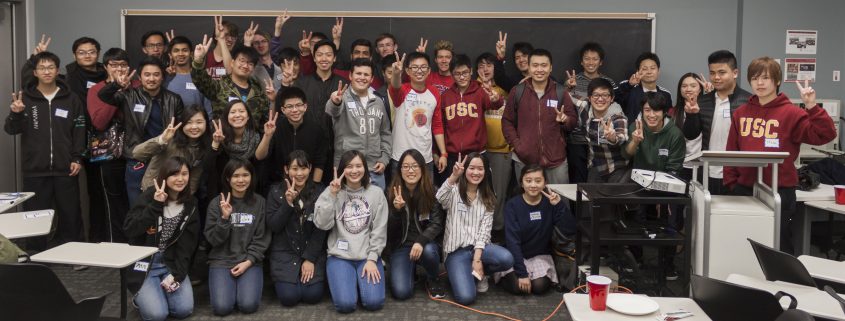USC club creates inclusive community for Japanese students
Created less than two years ago by club President Steven Nguyen, the USC Japanese Exchange Student Support has worked to bridge the gap between international Japanese students and Americans. JESS was named the Cultural Organization of the 2015-2016 school year and supports more than seven Japanese universities.
“Going to a different country and culture is often very difficult, but there are always people who are willing to help,” Nguyen said. “The USC Japanese Exchange Student Supporters gather USC students who are interested in helping Japanese exchange students.”
With 34 Japanese students and roughly 60 USC students, JESS is just over 100 members and growing. The organization works by offering events around Los Angeles, including trips to nearby museums and tourist attractions in addition to holiday and cultural parties.
Erick Chen, a freshman majoring in East Asian Area Studies, grew up in Taiwan and is a member of JESS.
“JESS has helped me explore different parts of L.A. I probably would not have know about or went to without the club,” Chen said. “JESS has lots of social events and we go to places like Little Tokyo to go to karaoke and eat together. It has helped me realized just how multicultural and diverse L.A. is.”
The organization uses their Facebook group as a log for documenting their experiences with JESS, much like a community journal or blog where peers can then review for grammar.
JESS also provides a forum for students to learn about Japan, rather than just through books.
“I think at its core, JESS is a social club where people can meet new friends and exchange in cross-cultural communication,” Chen said. “Through the many friends I have met because of JESS, I have learned so much more about Japan that is not in my Japanese textbooks.”
Jimmy Elder, a junior majoring in Japanese, recently joined JESS for its cultural, academic and social benefits.
“I think JESS has been beneficial with my Japanese class because it allows me to converse with native Japanese speakers and makes me feel comfortable speaking Japanese,” Elder said. “In turn, I think it is helpful for the Japanese students in giving them the chance to talk to and socialize with native English speakers. When I heard about JESS and the opportunity to help welcome Japanese exchange students to our community, I decided to sign up.”
Although JESS is known as a cultural educational group, most members agree that JESS is much more than that. It is a place that nurtures communication across cultures and cultivates new friendships.
“The USC supporters will help answer questions, host cultural exchange events and themed parties, show Japanese students around California and make the Japanese students feel like USC is their new home,” Nguyen said. “The Japanese students are currently our guests, but soon they will be our friends and a part of the Trojan Family.”

